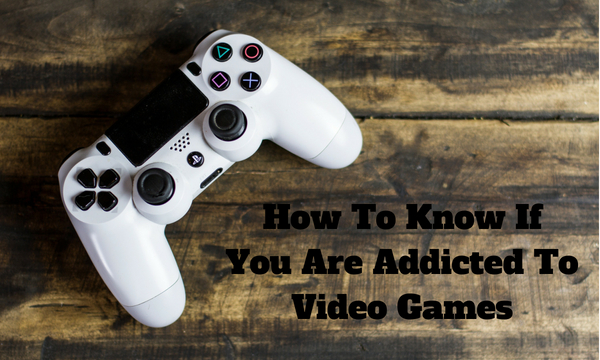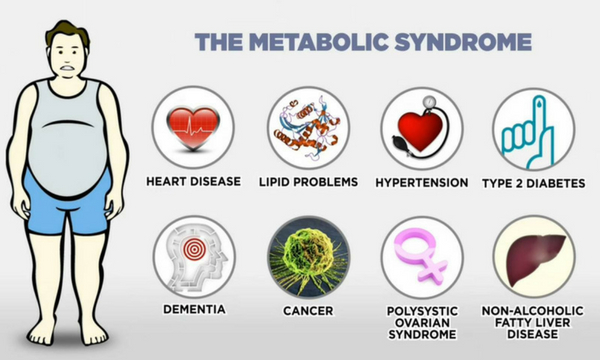Although not yet recognized by researchers and medical professionals as a diagnosable disorder, video game addiction is real and very dangerous. According to recent studies, as much as ten percent of gamers exhibit some signs of addiction which can range from physical ailments to emotional distress.
There are two broad categories of addiction based on the two major types of video gaming. The first type of addiction is associated with single players or games where only one player is needed. In these games, the goal can be to accumulate a large number of points or complete a mission such as rescuing a princess. Since accomplishing such tasks can be difficult owing to the complication of these games, players can end up glued to their gaming laptop for a whole day.
The second type of video gaming addiction is associated with online multiplayer games. Here, games are played by two or more players who interact online and challenge each other. The biggest draw of these games is that they mostly have no end. Unlike single-player games where a player loses if they can’t complete a mission in the provided time, interactive multiple-player games don’t have time limits and can go on for days.
Video games have been around for decades. From the time VCRs were the talk of the town to the DVD VCR combo (some still love them, though), and now to the digital stage when we have more advanced machines. These games are good for your kids, but only when they don’t reach the addition stage.
Causes of Video Game Addiction
One of the leading causes of video game addiction is that they are designed to be that way. Video game designers, like any other companies, are in business. Their main target is to make profits and the longer and more often players are up playing, the more money they make. So, the designers have learned to make a game just hard enough to keep you playing overnight, but not so hard that a player may want to give up. This makes winning a video game feel within reach, even when success is far far away. It’s similar to the effects of gambling where you always feel you’re close until you’ve depleted your savings.
Remember, however, that addiction is not the same as playing too much. If you play the whole night, that doesn’t mean you’re addicted to video gaming. Addiction has a compulsive element – a feeling of wanting to play at all times, at all costs.
A person who is addicted to video gaming is more likely to have difficulty thinking about other activities other than gaming. Moreover, gaming will probably interfere with his social life, causing that person to miss school, work, and other social activities just to play.
Signs and Symptoms

As with any other kind of addiction, video gaming addiction has signs and symptoms. If you or someone close to you is to get help, you need to learn to recognize these signs early on. The signs can be physical, emotional, or psychological, as follows;
Physical symptoms
Most of the documented signs and symptoms of video gaming addiction are physical. When someone is truly addicted to gaming, the first signs will be avoidance of other tasks or activities to concentrate on gaming. For instance, an addicted gamer will forego lunch just to concentrate on the game. A majority also avoid showering to focus on the game.
The other early sign to keep an eye out for is how much time that gamer spends indoors. A few gaming addicts can spend a whole day without coming out of the house. In fact, cases have been reported where gamers spend more than 48 hours without leaving the house. Worse still, most of this time is usually spent pushing buttons and clicking the mouse. A gaming addict never sleeps. If they do, it will be because they dozed off on the sofa. The following are some of the most common physical signs and symptoms of an addictive gamer:
- Having difficulties with sleep or major change in sleep patterns
- Frequent headaches and migraines
- Dry or red eyes
- Weight gain
- Poor/irregular eating habits
- Decreased personal hygiene
Emotional symptoms
Emotional symptoms are exhibited in our moods and behaviors. Addicts, whether of drugs or video gaming, can:
- Feeling of restlessness and irritability when unable to play
- Isolation from others in order to get more playing time
- Lying to those concerned (family and friends) about the time spent playing
- Preoccupation with the next online gaming activity, often causing sleeplessness
- Occasional gaming binges such as for instance, playing 10 hours non stop
- Eating meals while playing
- When not playing, discussing the game in online forums
- Decreased work/school performance
- Spending large amounts of money on gaming equipment – laptops, headphones, etc
Psychological symptoms
Psychological symptoms are usually the last to manifest and can be dangerous. They only show up once the addict is deep down the valley; when gaming has fully penetrated their system and now resides in their brain. The signs include;
- Difficulty abstaining from video games for a few days
- Feeling of guilt or regret after spending the whole day playing
- Justifying the long playing time (“But other’s play even longer!”)
- Feeling depressed or anxious when not playing
- Feeling calm and composed when playing
- Lowered interest in other achievements. Those activities no longer matter much.
- Downplaying the impact of excessive habits (“Gaming isn’t as bad as alcohol addiction.”)
Several other signs and symptoms may not develop immediately but which could also point to addiction. For instance, due to lack of physical activity, persons who are always on their computer are likely to gain weight. They may also lose real-world friends and instead make more friends in the online gaming community. The entrance of more and more affordable gaming laptops onto the market has also made it easier for gamers to access their games in more places than ever before.
Owing to lowered regard for academic and workplace performance, addicts of video gaming can also run into a problem with their families. Just as with drug and gambling addicts, the increased irritability of the gaming addict can result in frequent quarrels and fights with other family members.
Health issues associated with addictive gaming
When combined, the physical, emotional, and psychological strains can cause a myriad of health problems including diabetes, health disease, and poor circulation of blood, resulting in one or more of the following health issues.
Metabolic syndrome
 The more time a person spends on sedentary activities, the fewer calories they burn. This can lead to excess fat around the waist, a condition also known as the metabolic syndrome. People with the metabolic syndrome are at a higher risk of getting hypertension, diabetes, and other serious medical problems. The condition can also cause hormonal changes, leading to facial hair and menstrual cycle disruption.
The more time a person spends on sedentary activities, the fewer calories they burn. This can lead to excess fat around the waist, a condition also known as the metabolic syndrome. People with the metabolic syndrome are at a higher risk of getting hypertension, diabetes, and other serious medical problems. The condition can also cause hormonal changes, leading to facial hair and menstrual cycle disruption.
Increased risk of injury
Playing video games compulsively can also increase the risk of injury, such as what is known as the “video gamer’s’ thumb.” The video gamer’s’ thumb occurs when you repeatedly press on a video game controller, causing the thumb to swell and creating long-term problems with your hands and arms.
Bursitis
Prolonged stress on the ligaments, tendons, and nerves of the hands, wrists, and arms may also lead to tendon and nerve related health issues, especially bursitis and tendinitis. Bursitis is an inflammatory condition that affects the fluid-filled sacs between bones and tendons. You need that fluid to reduce friction and aid movement at the joints. Bursitis is characterized by swollen joints, pain in the joints, and stiffness when moving. If not treated early, it can turn into a chronic condition.
Tendinitis
As with bursitis, tendinitis is a problem of the tendons and ligaments. Tendons are the cords that attach muscles to bones. Tendinitis refers to inflammation of the tendons and can cause severe pain, swelling, tenderness, and, without proper treatment, may cause tendons to rupture, necessitating surgical intervention.
Carpal tunnel syndrome
Finally, excessive gaming can also contribute to the development of carpal tunnel syndrome, a condition that develops due to repetitive compression of the median nerve. The median nerve runs through the forearm and the palm of the hand and controls sensation in some parts of the hand. When you play a video game for a long time, you can over-compress this nerve, resulting in numbness, pain, and tingling of both the hand and the wrist.
Getting help
 There are treatment options for persons suffering from gaming addiction. However, you first need to establish and accept that you’re an addict. Once you’ve accepted your addiction, therapies and even medical prescriptions can be used to get over the condition.
There are treatment options for persons suffering from gaming addiction. However, you first need to establish and accept that you’re an addict. Once you’ve accepted your addiction, therapies and even medical prescriptions can be used to get over the condition.
A particular drug that has proven quite effective at helping gambling addicts, that can also help gaming addicts, is bupropion. The drug changes the brain chemistry in such a way that you won’t crave those video games as much as you did before. Another option is to treat only symptoms. For instance, if the addict has depression, then depression medications can be prescribed.
A word of warning though – all drugs must only be prescribed by a professional, licensed physician. Don’t just buy antidepressants over the counter because you think you might be an addict. Also, drugs must only be taken as recommended by the doctor. Don’t go above or below the doctors recommended dosage.













![Best Crochet Hooks for Beginners and Pros [2020 Update] best crochet books](https://www.awebtoknow.com/wp-content/uploads/2018/01/best-crochet-books-100x70.jpg)


